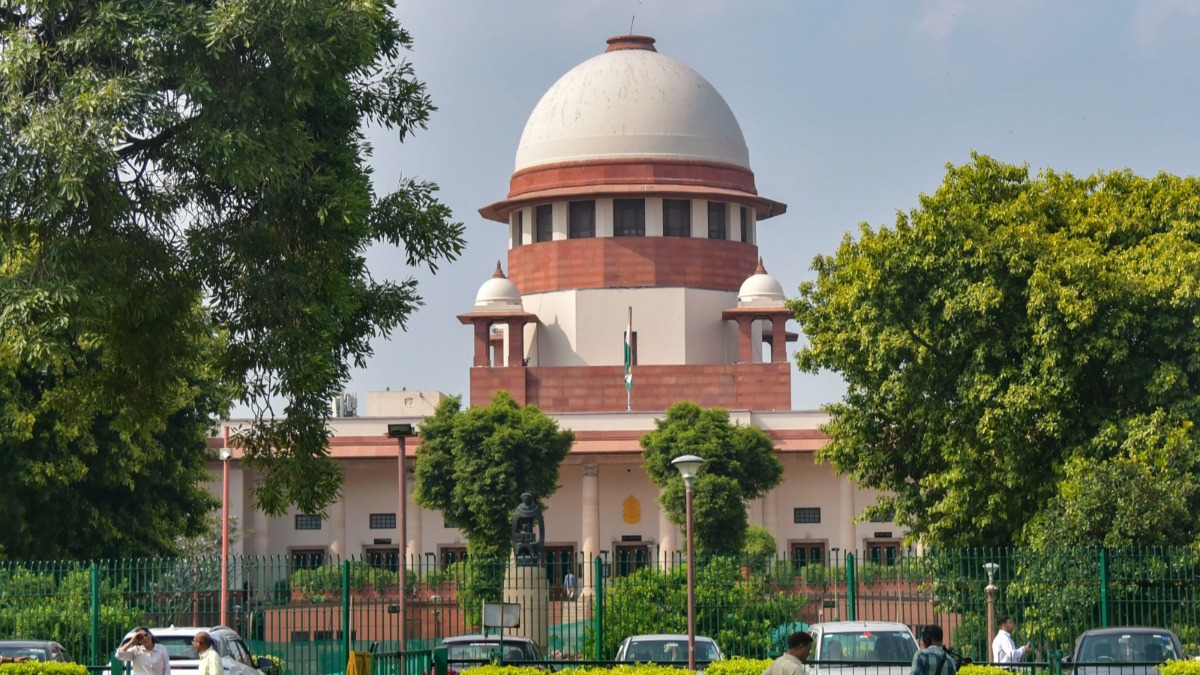The Supreme Court has dismissed a legal case against a professor who labelled August 5th for Jammu and Kashmir as a 'Black Day' and faced allegations for celebrating Pakistan's Independence Day on August 14. Javed Ahmed Hajam, a Kashmiri Muslim professor at a Kolhapur college in Maharashtra, had declared the abolition of Article 370 on August 5th as a black day via his WhatsApp status. Following the accusation, a case was filed against him. Justice Abhay S. Oka and Justice Ujjal Bhuyan's bench have ordered the criminal case to be canceled.
Strong Remarks from the Court
In their decision, the bench stated that it is time to educate our police machinery about the concept of freedom of speech and expression under Article 19(1)(a) and its reasonable constraints. They emphasized that police and investigative agencies should be sensitive to the democratic values enshrined in our Constitution.
Read Also: The Supreme Court urges for a center-state meeting to resolve financial disputes:" Find Mutual Solutions.
Highlighting the court's dismissal of the legal action against Hajam, the verdict expresses that his social media status on August 5th, the date when Article 370 was repealed, indicated protest and anguish rather than criminal offense under Section 153-A. The essence of democracy thrives on tolerance, without which constitutional democracy cannot be preserved.
The Court's Assertion
The Court also stated that extending Independence Day greetings is a gesture of goodwill, not a trigger of animosity, hatred, or ill-will among various religious groups. Since the defendant was of a particular religion, they should not be singled out for questioning. The test applied in such cases should not be the impact of words on some individuals with frail mentality who perceive danger in every hostile viewpoint, but rather the effect of statements on a reasonable number of well-minded individuals.
The bench further emphasized the right to dissent, stating that disagreement or dissent must occur within legal parameters, considerate of a dignified and meaningful life under Article 21 of the Constitution but within the realm of permitted democratic methods.
The Constitution grants the right to freedom of expression
The Indian Constitution guarantees freedom of speech and expression under Article 19(1)(a). It entitles every citizen to criticize any governmental action regarding the revocation of Article 370. It is their right to express dissatisfaction with any state decision – a reflection of personal viewpoint. This response to the annulment of Article 370 does not suggest anything prohibited under Section 153-A.
The Court affirmed every citizen's right to critique the abolishment of Article 370 and the subsequent changes in Jammu and Kashmir's status, recognizing the designation of that day as 'Black Day' as an expression of protest and pain. The constitution, an indispensable feature of democracy, remains paramount.
Right to extend greetings belongs to everyone - Court
In this matter, the Bombay High Court had previously denied the petition to cancel the FIR. Observing that the FIR's underlying assumptions could not be completely dismissed due to the possibility of inciting a segment of the population. Considering the petitioner's status as a college professor, as well as the students, parents, and guardians in the WhatsApp group, the bench rejected applying standards meant for the vulnerable and unstable-minded. They reminded that India has been a democratic republic for over 75 years.
In relation to the accusation concerning the image depicting a 'Crescent and Star' and the word '14 August-Happy Independence Day Pakistan', the bench explained that such a gesture does not attract the provisions of Section 153-A (1) (a). Each citizen has the right to extend good wishes on their respective Independence Days.




